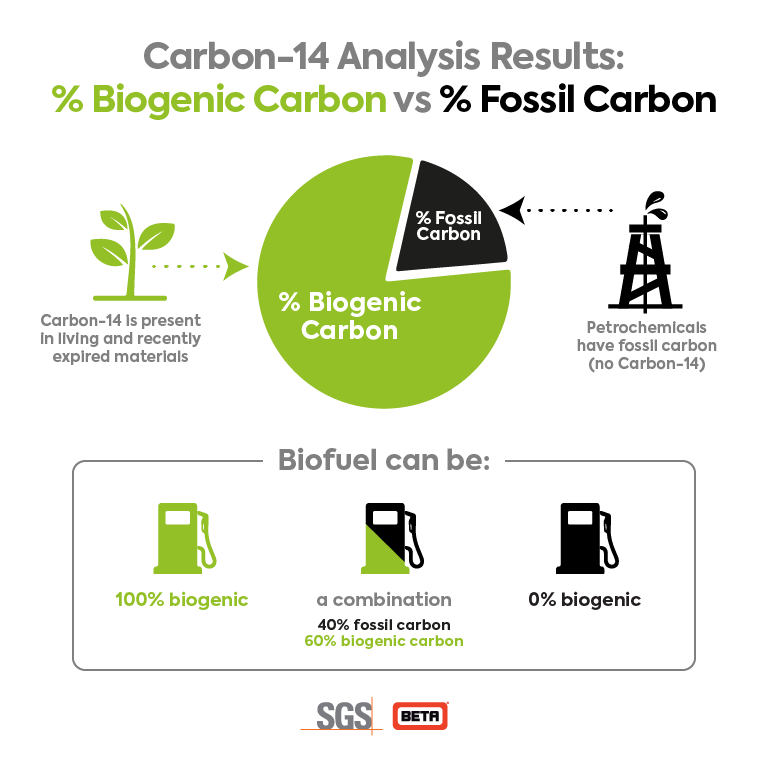Biogenic Carbon Testing of Biofuels
Measuring % Biogenic Carbon versus % Fossil Carbon in any biofuel blend, lubricant, and liquids with high petrochemical content
Request PricingWhat does “biogenic” mean?
The ASTM D6866 analytical standard defines “biogenic” as containing carbon (organic and inorganic) of renewable origin like agricultural, plant, animal, fungi, microorganisms, macroorganisms, marine, or forestry materials.
Biogenic carbon testing uses Carbon-14 technology to determine the biomass-based or biogenic fraction vs. fossil fraction of biofuels and other products. For example, bio-ethanol and synthetic fossil-derived ethanol are chemically indistinguishable but Carbon-14 testing will accurately distinguish the two.
Measuring % Biogenic Carbon
To illustrate how Carbon-14 analysis is applied for biofuels, let us use renewable diesel as an example.
The application of Carbon-14 analysis to derive the renewable diesel content in a mixture is built on the same concepts as radiocarbon dating. It is done by comparing the amount of radiocarbon (carbon-14) in an unknown sample to that of a modern reference standard. The ratio is reported as a percentage with the units “pMC” (percent modern carbon). If the material being analyzed is a mixture of present-day radiocarbon and fossil carbon (which contains no radiocarbon), then the pMC value obtained correlates directly to the amount of renewable diesel present in the sample.

Biofuel Manufacturers Need Carbon-14 Analysis to:
- Qualify for certain tax credits and comply with regulations, e.g. US EPA Renewable Fuel Standard
- Check the accuracy of biofuel blends
- Obtain precise results for R&D
Biogenic Testing Reporting Standards
- ASTM D6866 – Biogenic content percentage is expressed as a fraction of total carbon
- EN 16640 – Result is expressed as % biobased carbon as a fraction of total carbon (applicable ONLY to lubricants and liquids with high petrochemical content)
SGS Beta’s Biogenic Content Testing Services
- Standard Service – results are reported in 7 business days or less
- Priority Service – 4 business days or less
Get in touch to find the best solutions to your biogenic carbon testing needs.
Contact UsPage last updated: July 2025